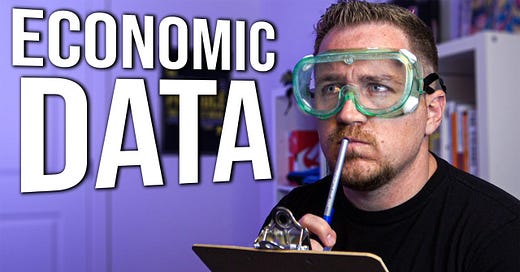I’m running a little behavioral economics experiment on myself. And it’s working.
Maybe you have the same problem I have: excessive use of social media. All the time I find myself on twitter and reddit, just browsing conversations. The problem is that the next day, most of the information I consumed is gone from my mind. I don’t spend enough time looking at information that has lasting value. So this last week I decided to change.
Here’s my behavioral economics experiment: on my phone, I moved my Chrome app and put the Wall Street Journal app in its place.
So what happened? Every day, when I mindlessly went to click on the internet, I found myself in the WSJ app. And since I was already there, I decided to read articles instead of constantly browsing. It was an immediate and impressive change.
Richard Thaler would describe this intervention as a nudge. I didn’t even remove Chrome from the phone; I just put it in a different location. And WSJ had been on my phone the whole time, but I put it in the prominent location I used to give my internet browser. I didn’t change any real costs, I just tricked myself into using WSJ more. As a result, my utility increased!
So here’s my question for you: what are your favorite app-based sources of information? WSJ has done well for current events, but I’d be interested in another app that gave me quality long-form content. It can even be a subscription service. If you have a favorite, just reply to this email.
Economics Data
A while back I started a series on how to stand out as an economics student. My answer: get involved in research. If you haven’t seen those videos, you can watch the playlist. This week, I’m releasing the next video.
Maybe this doesn’t happen as much anymore, but when I was in college there was a trend where students would post a plea on social media, “Hey everyone! I’m writing a paper for a class and I need you to answer a survey. Please click the link and share!” Leaving aside that this violates every surveying best practice, this is just an inefficient way to collect data. Is there a better way?
Of course! There’s tons of data available for free online. I use it all the time. In fact, last week I was working on a project that needed data from a public source, which is what made me realize I needed to make this video. In the video, I present 6 data sets that I regularly check when I do research. In a break from tradition, it’s a quick video, so take 7 minutes out of your day and go watch it!
Play with Economics
Richard Feynman is one of the most famous physicists in history and made several important contributions to our understanding of quantum physics, eventually resulting in his receiving the Nobel Prize. But, surprisingly, one of his main contributions has been his teaching methods.
Feynman was known for his ability to take the complexities of physics and explain them in a way to make them accessible to his students. His teaching was so famous that his lecture notes are still available online. In fact, you can watch his lecture from 1964!
Well, this last week I came across this anecdote about Richard Feynman. He talks about burnout, and how he was no longer having fun with physics. So what did he do? He decided to start playing with it. And I want to recommend that to you. When economics doesn’t seem like fun, just start playing around and see what you can learn.
Malaria Vaccine
As you’ll learn in a development economics class, one of the biggest impediments to human capital acquisition in poor countries is poor health. Malaria is one of the biggest killers in the world, and for many decades the world was able to fight against it through insecticide treated bed nets and other interventions. But that progress had stalled and it seemed like nothing worked.
Some good news: some African countries are testing a malaria vaccine, and the initial results are promising. Certainly you will see an economist in the near future show the effect of this vaccine on educational attainment. Maybe you’ll write it!




